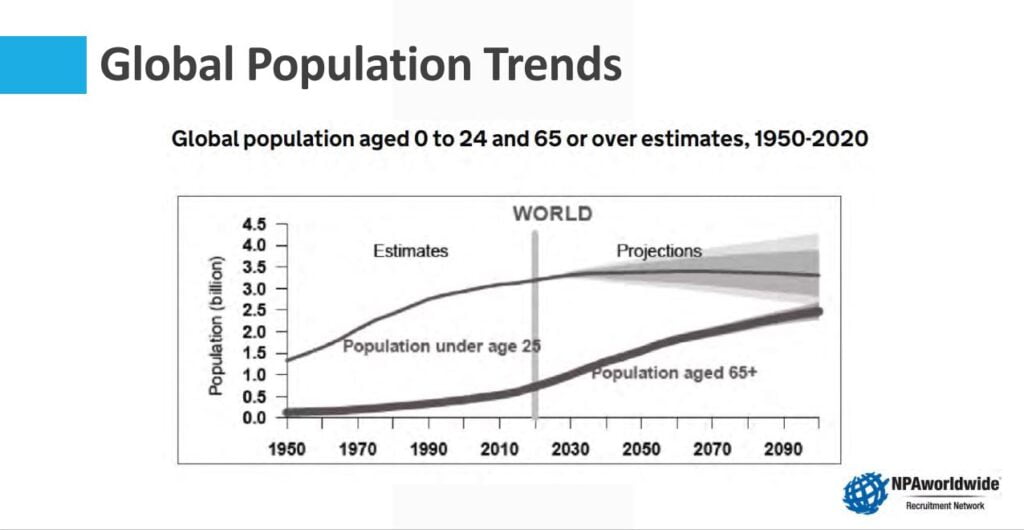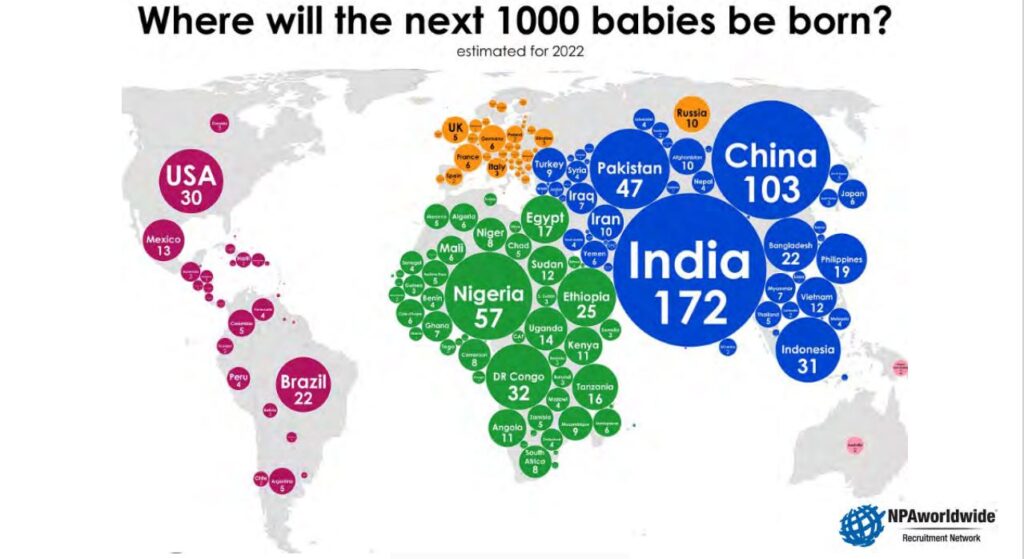Top 5 Tips for Retaining Your Top Talent
Posted on July 17th, 2023
We recently conducted a survey among our employee database to gain insights into employees’ preferences and motivations when it comes to increasing their income. The survey results unveiled fascinating findings. Notably, 51% of respondents expressed their intention to explore new job opportunities, citing their belief that their current company either wouldn’t consider or wasn’t capable of providing a salary increase. Additionally, many employees expressed the sentiment that if their company truly valued them, they would be rewarded with an increase without having to request it.
In a market experiencing a shortage of skilled workers, it is crucial for businesses to take a proactive approach in engaging with their staff. Waiting until an employee presents another job offer may be too late, as they would already be mentally prepared to leave. In this article, we will delve into the implications of this trend for businesses and examine the reasons behind these decisions from the candidates’ perspective.
Attracting and Retaining Top Talent:
The survey results clearly indicate that more than half of the candidates are actively considering leaving their current jobs in pursuit of higher-paying positions. This highlights the intense competition for talent in the job market. To remain competitive, businesses must adopt proactive strategies to attract and retain skilled employees who can contribute to their long-term success.
Importance of Competitive Compensation Packages:
One of the key factors driving candidates to seek new job opportunities is the perception that their current employers lack the capacity or willingness to provide substantial pay raises. Therefore, it is essential for businesses to regularly review and ensure their salary offerings are at current market value. By offering competitive compensation packages, companies can demonstrate their commitment to valuing their employees’ contributions and help retain top talent.
Unleashing the Power of Career Development:
Career growth and development opportunities are closely tied to employee satisfaction and engagement. The survey revealed that candidates often feel limited in their current roles, with limited prospects for advancement. By investing in training programs, mentorship initiatives, and clear career paths, businesses can create an environment that fosters professional growth. This not only enhances employee satisfaction but also reduces the likelihood of talented individuals seeking opportunities elsewhere.
Nurturing Employee Engagement:
Engaged employees are more likely to be loyal and committed to their organisations. Job satisfaction and engagement play a crucial role in determining whether employees will explore new job opportunities or remain loyal to their current employers. By cultivating a positive work environment, encouraging open communication, and recognising employee contributions, businesses can foster higher levels of engagement and job satisfaction, reducing the desire to seek higher-paying positions elsewhere.
Recognising Employee Loyalty:
While the survey results highlight a significant portion of candidates considering leaving for better pay, it is equally important to acknowledge the 49% who expressed their intention to ask their employers for a pay increase first. These individuals value loyalty, are content with their current positions, and enjoy their jobs. Businesses should appreciate and recognise the dedication demonstrated by these employees, as their loyalty can significantly contribute to a positive work environment and long-term success.
Understanding the factors that drive employees to seek new job opportunities is essential for businesses looking to attract and retain top talent. Factors such as competitive compensation packages, career development opportunities, employee engagement, and maintaining a positive employer brand are crucial in today’s evolving recruitment landscape. By acknowledging these considerations and taking proactive steps to address them, businesses in Western Sydney can enhance their ability to attract and retain high-quality talent. At Norwest Recruitment, we are here to support you in navigating these challenges and developing effective strategies to thrive in the ever-changing world of recruitment.
If you require further assistance or have any questions, please feel free to reach out to our team on 8853 4111 or email recruit@norwestrecruitment.com.au. We are dedicated to helping you succeed in your recruitment and talent acquisition endeavours.
The Demographic Drought – The Disaster Continues.
Posted on July 3rd, 2023
Insights from NPA Worldwide Conference 2023
Recently, Norwest Recruitment’s Director, Erica Westbury, attended the NPA conference in Sicily to discuss the global outlook in recruitment over the next few years. Interestingly, one of the key i nsights presented by Dave Nerz, President of NPA Worldwide is “The Demographic Drought,” something that we are seeing not only here in Western Sydney but across Australia and the globe.
Traditionally, businesses would hire skilled staff to grow as well as natural population growth. However, with the continued skills shortage we have seen, even prior to the pandemic, the same question keeps being asked: “Why is there a skills drought? Where is everyone?”
The US and the UK are reporting a drop in workforce participation, with “the US experiencing its lowest levels of workplace participation since the mid-1970s before the influx of women into the workforce,” says Nerz. How could this be?
What is causing these shortages?
Thousands of the Baby Boomer generation are retiring every day, and this was further pushed by the pandemic. Not only will their workplace participation cause a problem but so will their wealth. “We’re seeing this issue here in Western Sydney,” says Erica Westbury. “The children and grandchildren of the Baby Boomer generation are relying on the generosity of their parents as well as their potential inheritance. They are staying at home longer, and the expectation of purchasing a home is not the same as it used to be because home prices have increased so much. We’re seeing more people choosing a lifestyle over work, with many able to demand the hours they want to work or being selective over the salary on offer. Social media has opened up a global marketplace and many young people are supporting themselves with their side hustles.”

Additionally, birth rates across the globe are declining due to reasons such as industrialisation, urbanisation, secularisation, people marrying later in life and choosing to have fewer children, as well as women prioritising education and career over having many or any children. Debt, unemployment and economic uncertainty are also contributing factors.
What does this mean?
The projections of death versus birth rates mean countries need to look at other avenues to increase their population. James Robards from the Population and Household Projections Office for National Statistics (USA) states, “Net international migration is expected to play an increasing role in population growth.” The USA’s demographic decline is 15 years behind Japan. Australia is also relying on immigration to fill our vacancies…however, this is a global expectation. We’re all fighting for the same talent!

Korn Ferry predicts that by 2030, 85 million jobs around the world will go unfilled because there aren’t enough skilled workers. Therefore, growing those skills from within amounts to self-preservation for companies.
“We’re all going to be fighting for the same talent across the globe,” says Erica. “We’re not seeing the full impacts of what is happening overseas here just yet but we are definitely starting to feel it. This is the time that businesses can prepare themselves by looking at the way they are recruiting, who they are placing into their organisations, and how they will retain their staff.”
The rise of automation was also discussed in the forum; however, AI is expected to actually increase jobs more than remove them. The World Economic Forum estimates that AI and robotics advancements will result in a net increase of 12 million jobs globally by 2025.
What happens next?
The skilled labour shortage will be a long-term issue; however, here in Western Sydney, we have some time to make changes and prepare for the future. The businesses that prepare themselves now will have the opportunity to attract the best employees and retain them for the long term, minimising their impact on productivity.
“Businesses here in Western Sydney already have the advantage of a large talent pool of people wanting to work closer to home, which is one of the key factors we come across when speaking to our job seekers. They’re also still able to have a competitive salary package even while working close to home,” says Erica. “However, there are other defining factors that we repeatedly hear from our job seekers, such as flexible hours and/or career development. This is something that some of our clients are already offering, but more businesses can consider including as a means to attract skilled talent. Another area that we see as a defining factor is job training and onboarding of new staff. The first impression does matter. So when you have new talent starting, have a structured program for them to settle into, have other staff and management welcome them, have their laptop or computer ready for them so they know they were expected, and their team is excited to have them there. Long term mentoring and an upskilling program might save your business in the next 5 years. Relationships with recruiters in your niche will help by having eyes in your industry 24/7. The conversations we’re having with our clients now are very different to what it was a couple of years ago.”
If you would like to find out more about the trajectory of the skills shortage or the issues discussed at the NPA conference, or if you want to know how we can help your business stay competitive in the market, please reach out to Erica Westbury and the team at Norwest Recruitment on 8853 4111 or email recruit@norwestrecruitment.com.au.